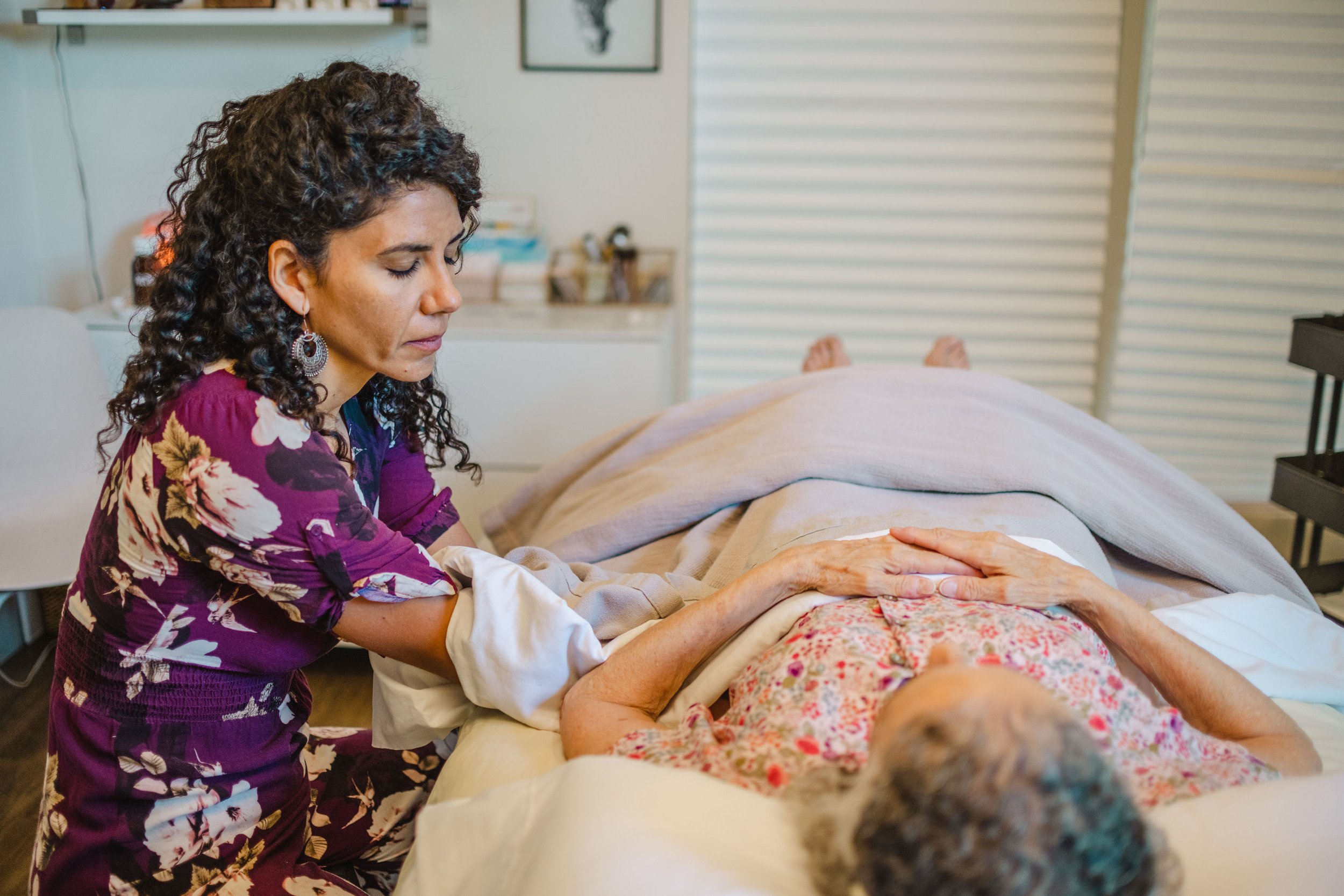
Questions? Let us answer them.
You’re in good hands.
FAQs
How does acupuncture work?
Several thousand years ago, East Asian practitioners discovered that the body forms disharmonies as a result of the various physical and mental stresses of life. Oriental medical theory explains these disharmonies as an imbalance of opposing forces called yin and yang. This imbalance disrupts the movement of the body's vital energy—called qi—along the meridian pathways, which are channels through which the body's energy is thought to flow. Acupuncture restores the smooth flow of qi by inserting and manipulating hair-thin needles at specific points. This allows the body to restore its natural balance and promote the body's ability to heal itself.
Does acupuncture hurt?
Although it sounds unsettling to lie down and have needles placed in your body, getting acupuncture is very relaxing. The needles are hair thin and very flexible, so they are nothing like the hypodermic needles used in western medical settings. Most of the time patients don't even feel them being inserted. When the needles are gently stimulated they may produce a unique sensation known as de qi, which can feel like a dull ache or sometimes called “needle grasp”. It usually only lasts for a moment. Instead of feeling pain or discomfort, most patients fall into deep relaxation and even end up falling asleep.
Is acupuncture safe?
Yes. Acupuncturists are required to undergo extensive education, including detailed study of human anatomy and training in Clean Needle Technique. Aside from a four year Masters degree, students must pass comprehensive national board examinations administered by the National Certification Commission for Acupuncture and Oriental Medicine (NCCAOM). We are also licensed by the state we practice in, and as required by law, we use pre-sterilized, disposable, single-use needles to ensure your complete safety.
How many treatments
will I need?
Each individual has a different diagnosis, and treatment plans will be determined based on your condition. Typically, for acute conditions it is recommended to be treated once a week for 6-10 weeks. Some patients choose to come in every 2-4 weeks. Although chronic conditions may take longer to resolve depending on the severity of the condition, you should begin to feel relief within the first few treatments.
Acupuncture vs Dry Needling?
Dry needling is a broad term used to differentiate “non-injection” needling from the practice of “injection needling” which utilizes a hypodermic syringe and involves the injection of an agent such as saline or corticosteroid. Though it borrows from techniques used by an acupuncturist it is limited in scope. Dry needling is usually performed by a physical therapist. Orthopedic acupuncture is similar in style to the dry needling being performed by physical therapists.


